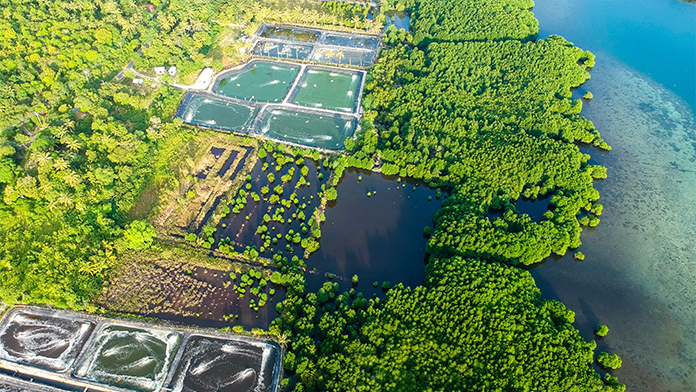Exclusive content

In 2023, Delta Marine, a prominent shrimp farm in Indonesia, is celebrating a remarkable year of record-breaking shrimp production. Despite the overall gloominess in the Asian shrimp market, Delta Marine’s CEO, Rizky Darmawan, remains optimistic about the farm’s ongoing success.
Darmawan disclosed that the current farming season, spanning three months, has been smooth, with no interruptions or early harvests. The farm has experimented with both heterotrophic and autotrophic production systems in collaboration with nutrition company DSM, achieving an impressive yield of 28 tons per hectare on a 20-hectare area. For the current season, Delta Marine aims to further increase production to an average of 30 tons per hectare.
However, the prevailing challenge for shrimp farmers in Indonesia is the persistently low selling prices. The uncertainty surrounding how long this situation will last has led some farms to close temporarily, reduce production, or operate cautiously until the market recovers.
Darmawan, echoing the concerns of shrimp farmers across Indonesia, fears that shrimp prices may continue to decline, pushing many farms to the brink of bankruptcy. The economic recession and widespread inflation worldwide have compelled consumers to cut spending or opt for more affordable protein sources, impacting the consumption of shrimp products.
Despite the challenges, Delta Marine remains profitable, and Darmawan emphasizes that the farm continues to expand production to seize opportunities in the global shrimp market. The low shrimp prices, while a concern, have a lesser impact on Delta Marine compared to downsizing or inefficient operations.
In addition to grappling with low prices, Indonesian shrimp faces increased pressure in the US market due to higher anti-dumping taxes. Reports of government subsidies for shrimp farms have led to higher taxes, potentially causing further declines in Indonesian shrimp prices and negatively impacting the entire industry, as Indonesia heavily relies on the US market.
Looking ahead to 2024, Darmawan expresses high hopes for the recovery of the Indonesian shrimp industry. Delta Marine plans to expand by adding two more farming areas, with further expansions in the following years, bringing the total number of farming areas to seven.
Beyond expansion, Delta Marine is committed to sustainable development, incorporating solar panels into shrimp farms to save energy. Darmawan envisions covering all Delta Marine shrimp ponds with solar panels within the next two years, resulting in a 5% reduction in energy costs. The company is also adopting an integrated multi-nutrient farming model, diversifying into polyculture with fish and algae to minimize environmental impact and increase profits.
Delta Marine has initiated experiments with polyculture involving milkfish and high-value seaweed in some shrimp ponds. Darmawan encourages other shrimp farms in Indonesia to follow Delta Marine’s lead in overcoming the challenges posed by the global shrimp price crisis.